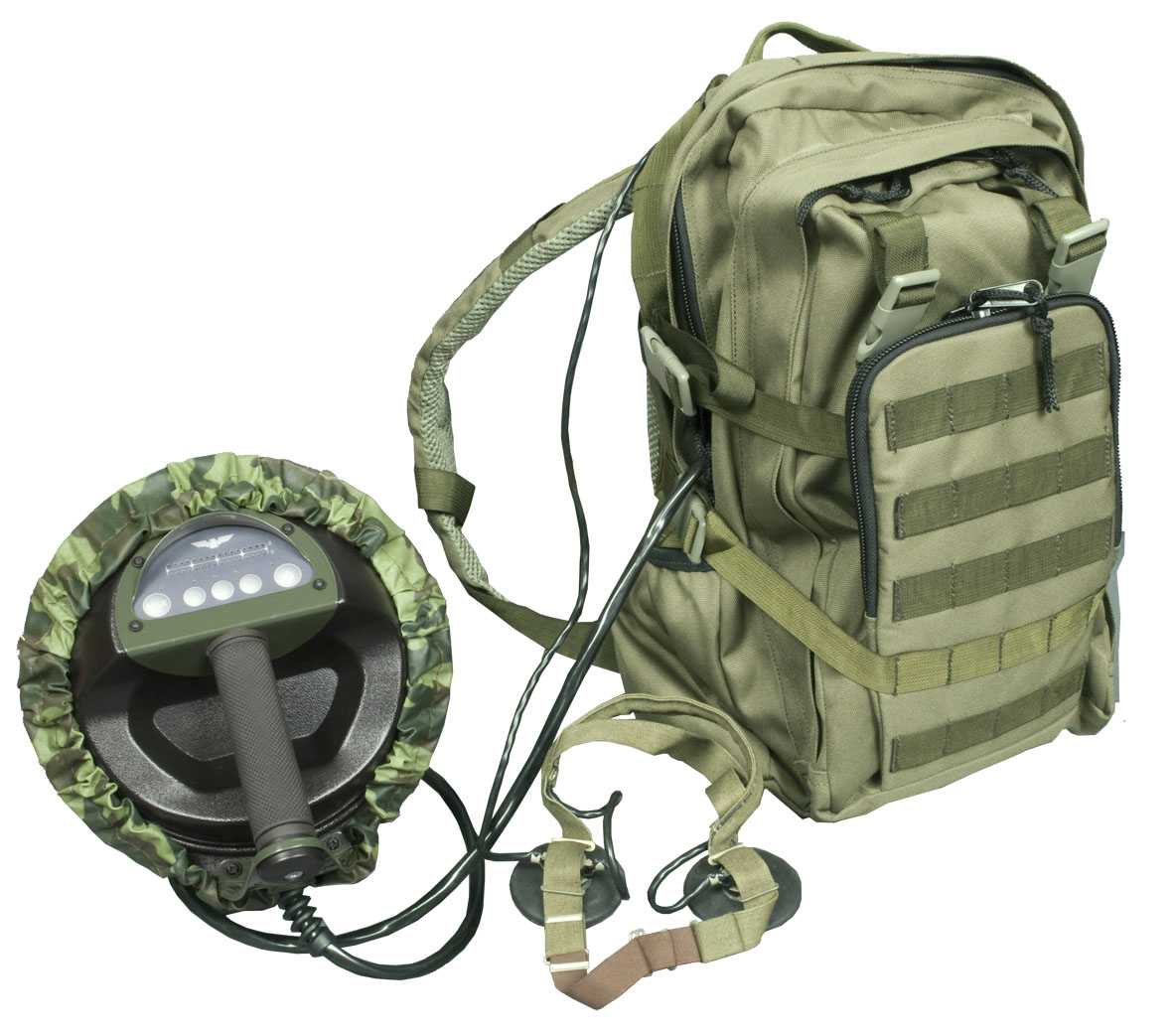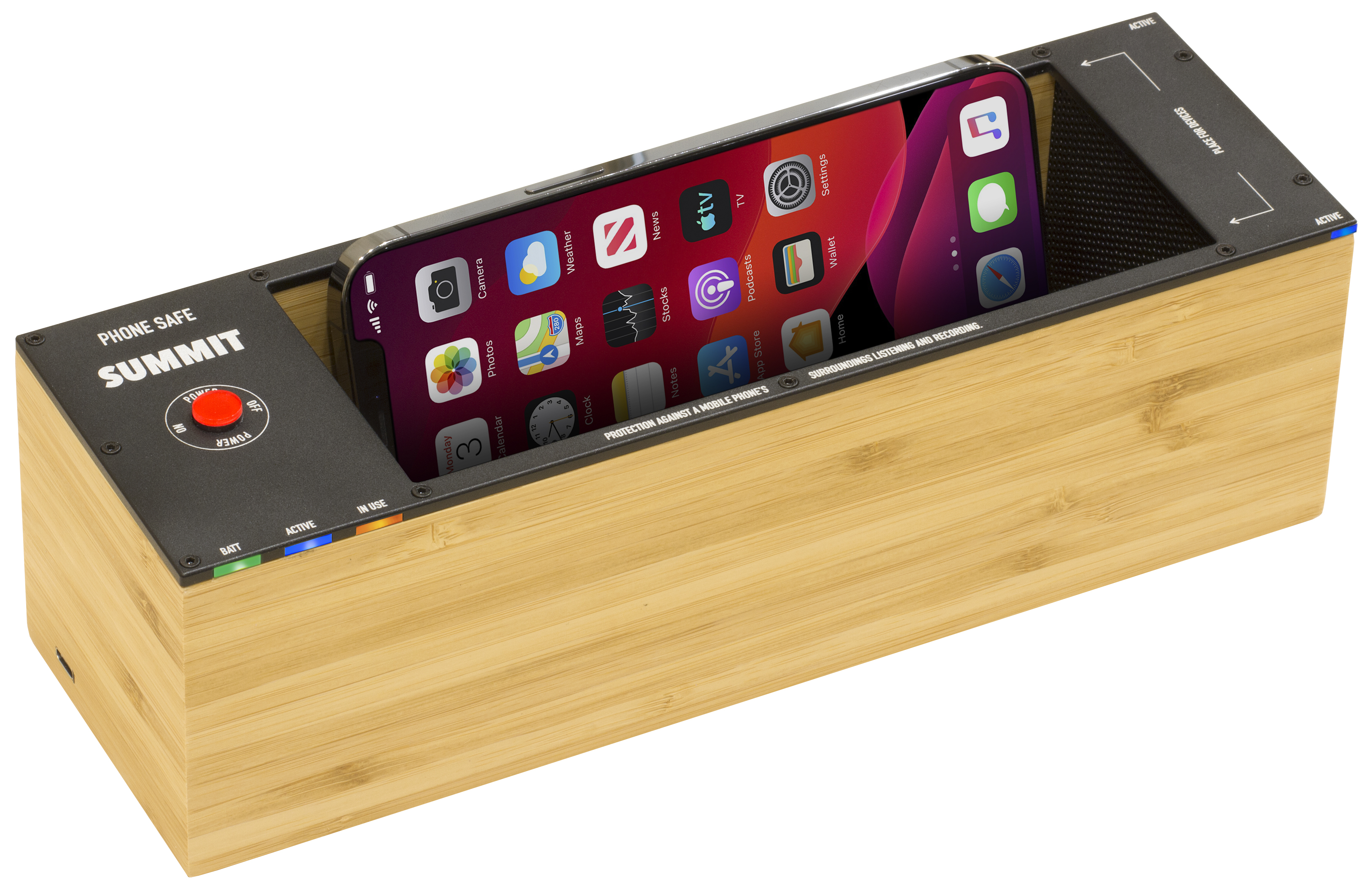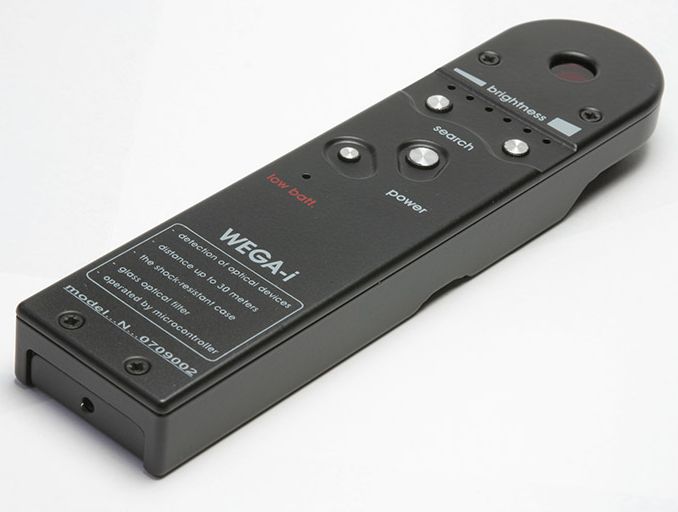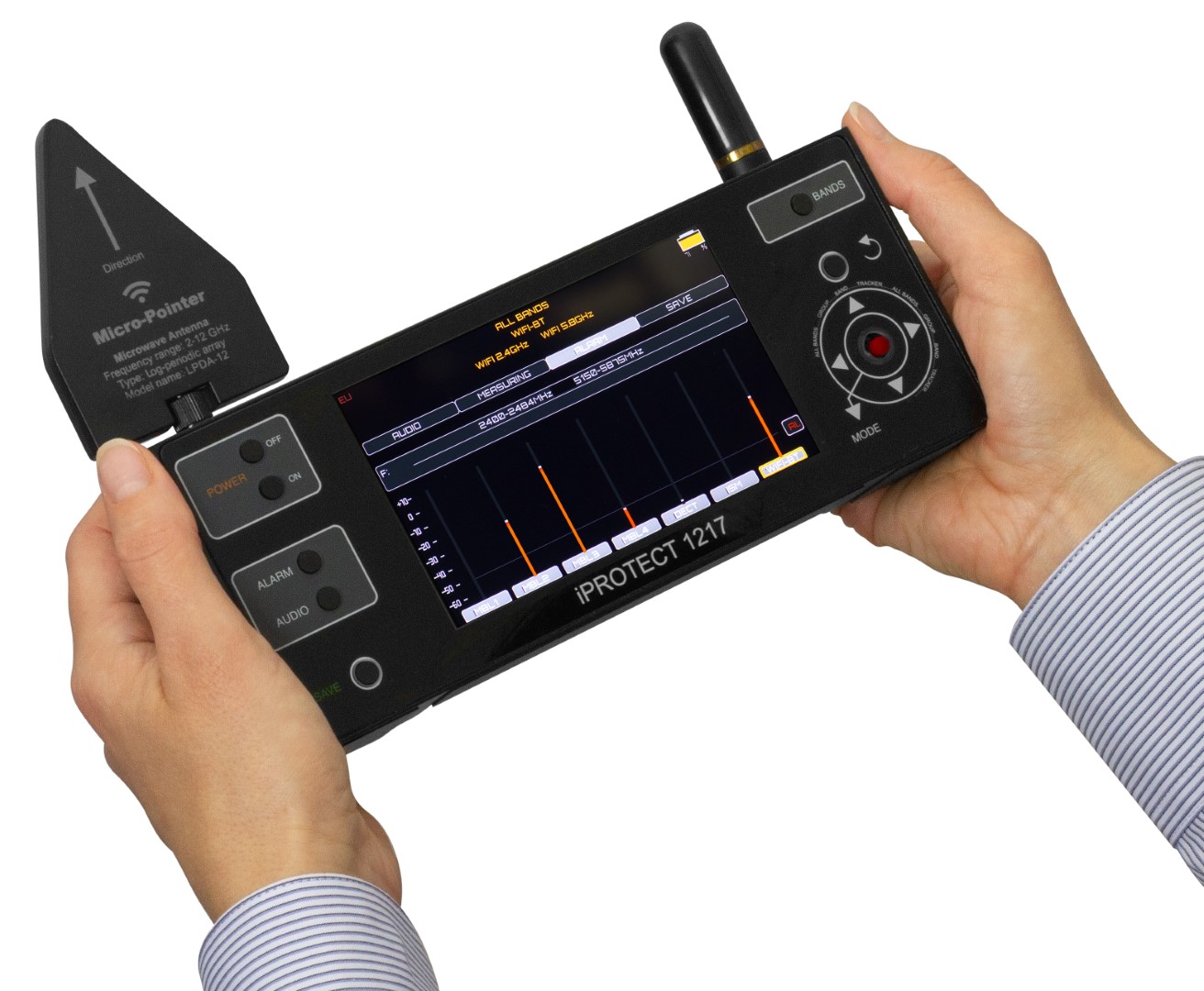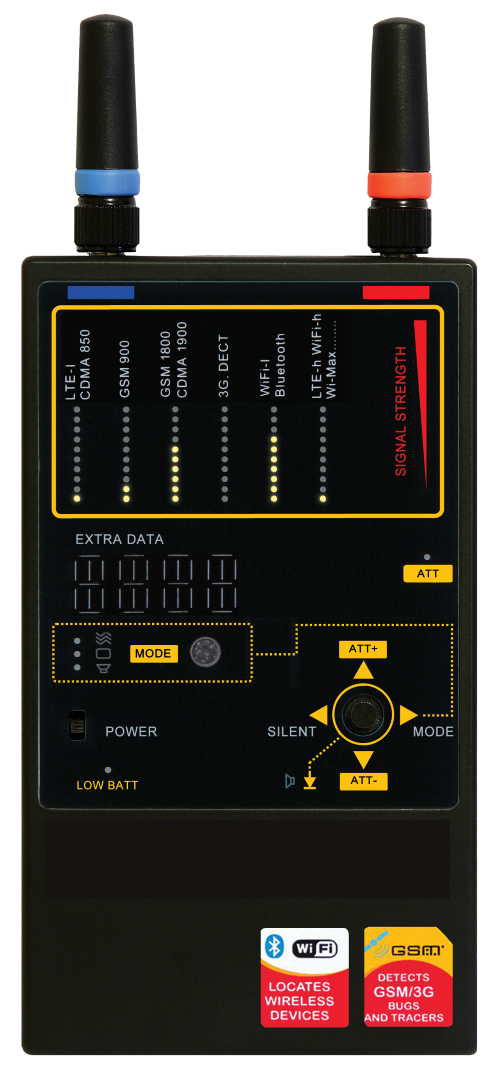General purpose:
eavesdropping device and similar electronic appliances detection in premises (radio microphones, microphone amplifiers, dictaphones, etc.)
Application:
examination of office and living accommodation building structures as well as furniture and domestic articles, that do not contain any electronics – for concealed bugging facilities (radio-mikes, microphone amplifiers, dictaphones etc.).
Advantages:
- various electronic units detection in any operational mode: active, switched off and stand-by
- light portable design with built-in connecting cables (from antenna to the main unit), optional display on the back of antenna unit cover
- original circuit design for optimum combination of pulse & CW NLJD merits
- extended continuous operation time without battery replacement
|
Specifications:
|
|
|---|---|
|
Output power: searching mode envelope separation mode (20K) |
average, 0,40 W not less than 2W |
| Probing signal power attenuation | 5 dB x 2 steps |
| Receiver sensitivity (under 10dB signal/noise ratio) | not worse than -150dBW (-120dBm) |
| Received signal attenuation | 10 dB x 4 steps |
| Antenna, polarization | directional, circular |
|
Indication: audio visual |
headphones LED display |
| Target localization accuracy | not less than 0.1m |
| Power supply | rechargeable battery |
| Continuous operational time (with one fresh battery) | not less than 4h |
| Weight (ready for operation / in standard packing) | 2.9kg/6.5kg |



